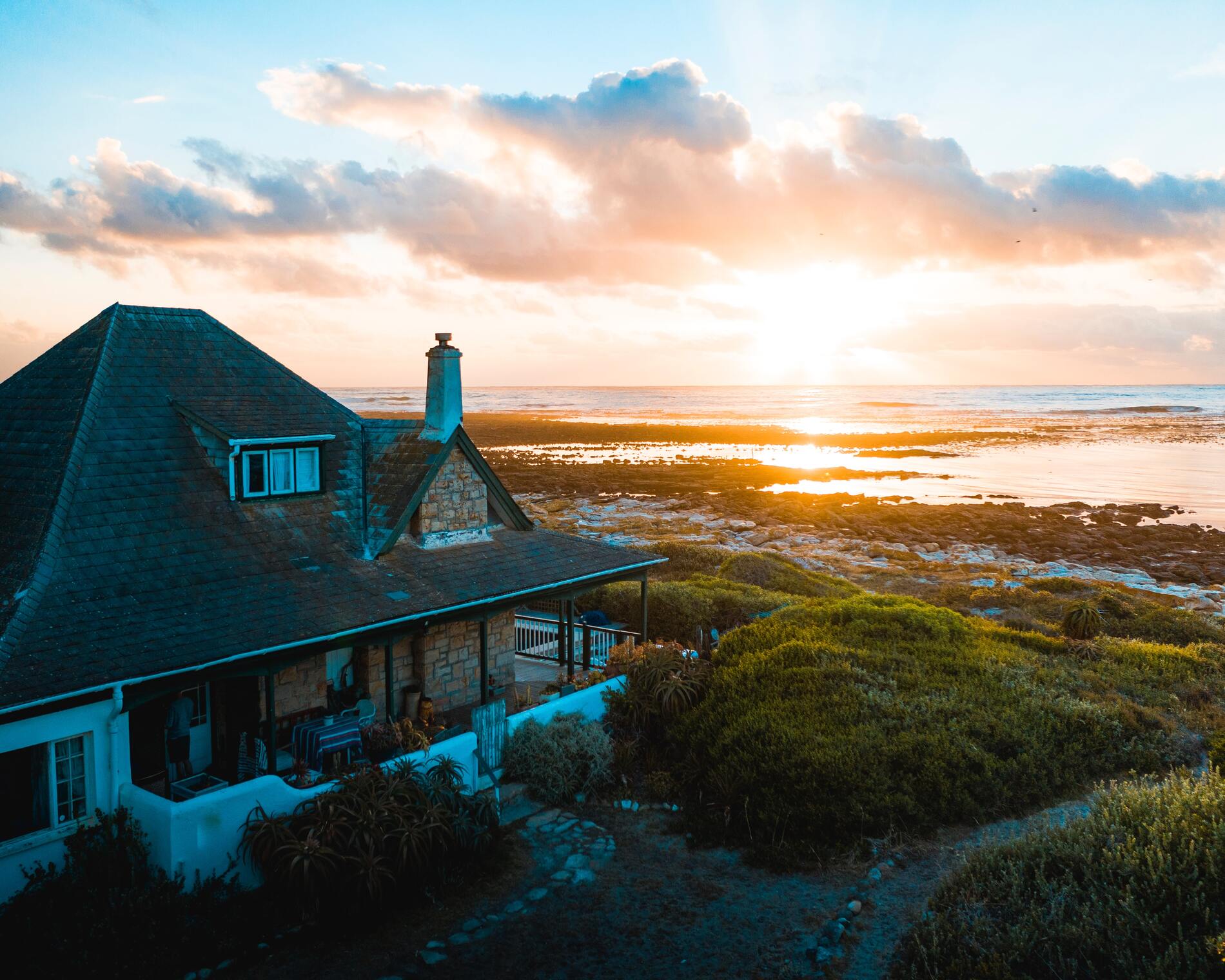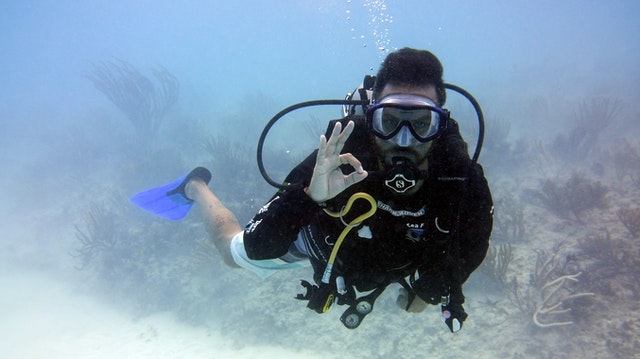Your holiday home can be an oasis for personal growth, an investment for your legacy, or a source of extra income. As a legacy investment and family home away from home, you have a special spot to gather, share meals, engage in play and light competition, and make a lifetime, invaluable memories.
As a source of income, you can measure the maintenance cost and frequency of personal use as factors in your real estate investment value. Whatever your use is for the home, making the most out of what you have is probably top of your list. The tips in this guide will help you keep the value of your investment and maximize your time there.
DIY Your Vacation Home
The use of the house will guide your decoration style — a forest cabin is likely to have less sand tracked through it. A rental unit should be comfortable but sparse – you do not want to risk personal keepsakes being damaged or broken. There are plenty of options to find inspiration, including social media or even finding an online decor magazine. Generally, there are a few classic styles that are easy to maintain and keep consistent throughout the space:
- Hamptons — all the luxury with the simplicity of clean lines and cool tones like whites and blues.
- West Coast — warm fabrics, wood accents, and cedar carvings blend with modern and eco-friendly amenities.
- Rustic — the classic hunting cabin, plaid textiles, exposed wood beams, and a central hearth as the focal point.
- Mid-Century Modern — flat plains, open spaces, and large windows set the stage for pastel color bar palettes, functional design elements, and furniture with simple lines.
- Bohemian — characterized by a lack of structure and layered design.
As you are working through your decorative style, there are things you cannot do without. Linen and towels for the kitchen, bathrooms, and bedrooms and kitchen basics, including utensils, a kettle, and a can opener. Metal or plastic glassware is necessary for outdoor use to prevent injury from stepping on broken glass.
You should review local bylaws and permit requirements if your decorating plans include remodeling. If done incorrectly, bathroom or kitchen remodeling involving plumbing could disrupt the entire community. A local tradesperson will know the best practices for your area and can save you a considerable amount of money.
Financing Your Holiday Home
Entering the world of vacation property ownership often starts with understanding your financial options. The mortgage loan process for a holiday home differs slightly from that of a primary residence. Financial institutions consider several factors such as the property’s location, its potential rental income, and your creditworthiness. Before diving into the purchase, it’s beneficial to understand the intricacies of second-home loans. Interest rates might be higher due to the perceived risks associated with vacation properties, especially if you intend to rent it out. Also, be aware of the down payment requirements, which can sometimes be more substantial than that of a first home. While navigating this journey, consult with mortgage professionals who have experience in vacation properties. Their insights can guide you in making well-informed decisions, ensuring that your holiday home is not only a place of relaxation but also a sound financial venture. Remember, while the allure of a vacation home is strong, maintaining a clear financial strategy is pivotal to truly enjoying the benefits of your investment without unforeseen financial strains.
Take Advantage Of Your Property
Stock the kitchen with the basics like oils, vinegar, spices, tea, coffee, dried and canned goods, and baking supplies. Most of these items are inexpensive and often overlooked when shopping for a vacation. The list should also include toilet paper, hygiene items, first aid kits, and basic toiletries.
The home may be offered to loved ones or shared with multiple families when you aren’t using it. You can avoid awkward conversations by posting a clear policy or house rules for everyone to see. If the space feels particularly crowded, set up a tranquility zone so individuals can enjoy time to themselves or take a break from a stressful interaction.
Renting Out Your Vacation Home
If you purchased your property to use as a short-term rental unit, your real estate agent should have gone over the regulations and restrictions for your area. If you have recently decided to enter the rental market, check the rental bylaw regulations for your site first. Your rental can also have implications for your taxes and mortgage. Your accountant or mortgage broker should have those details for you. General taxes, insurance, maintenance of the property, and local VAT should be in your rental plan along with your budget and anticipated income.
When renting out your vacation home, it’s essential to consider rental property improvements to attract potential renters and enhance their experience. Upgrading amenities, such as installing modern appliances or improving the overall decor, can make your property more appealing and potentially increase rental income. Additionally, maintaining the property’s condition through regular maintenance and repairs ensures a positive guest experience and helps protect your investment. By understanding the rental regulations in your area, consulting with professionals regarding taxes and mortgages, and incorporating rental property improvements into your rental plan, you can optimize the profitability and success of your vacation rental. It’s also recommended to make use of reliable analytics tools as Airbtics to better understand your target market and plan your strategies accordingly to boost your rental income.
A successful vacation rental isn’t just about location or amenities; it’s about creating an experience that resonates with guests. Often, what sets a property apart in the competitive rental market is the attention to detail. Think about the little touches that can enhance a guest’s stay. Curate a local guidebook that highlights hidden gems in the area, from cafes and boutiques to scenic hiking trails. Offer board games for those rainy days or a collection of bestselling novels for guests to delve into. These thoughtful additions not only enrich a guest’s experience but also build positive reviews, which are gold in the rental business.
In today’s digital age, where first impressions often stem from online photos, the presentation of your vacation home can significantly impact its rental success. Engaging a professional real estate photographer is a worthwhile investment, ensuring that your property is captured in the best possible light. High-quality images emphasize the unique features of your home, showcasing its full potential to potential renters. With striking visuals, you not only increase visibility in a saturated market but also offer a more accurate representation, setting clear expectations for prospective guests and reducing potential disputes.
Beach House
Beachfront properties are glorious. Before buying a beachfront home, consider these factors:
- Location — natural disaster areas should carry additional insurance riders
- Utilities — access to municipal sewer and water vs. septic and well water
- Wear and tear of saltwater and wind associated with the weather on beachfront properties compared to off-beach properties.
Salt and moisture are a certainty with a beachfront home. To preserve the home’s exterior, keep a clear perimeter around the house and regularly wash the sand and salt off any painted features with an eco-friendly solution of mild soap and water. To clean and prevent future mold and mildew growth on windows, use a solution of bleach added to water.
Immersing yourself in the serene beach atmosphere extends beyond outdoor activities; it’s about capturing that coastal vibe inside your home as well. Embracing beach house decoration is key to creating a space that reflects the tranquility and beauty of your surroundings. Opt for light, airy colors and fabrics, and incorporate natural materials like wood and stone to bring a bit of the outdoors in. Artwork and accessories inspired by the sea can add a playful touch, while plush furnishings ensure comfort after a long day in the sun. Remember, the goal is to create a cohesive look that mirrors the calm and inviting ambiance of the beach itself. So, whether you’re enjoying a meal with family or simply relaxing indoors, your beach house decoration plays a crucial role in enhancing your overall experience
With your property maintenance complete, it is time to hit the beach. Paddleboarding, kayaking, and snorkeling are accessible ways for the whole family to view marine life while enjoying physical activity. If your group wants to try something a little more challenging, sports like water skiing, wakeboarding, and surfing will be right up their alley.
One of the most memorable times a family can have is over a delicious meal. Use the local markets and try one of these delightful, beach-inspired recipes.
The five most common sea life while visiting a beach location, to protect yourself are jellyfish, lionfish, sea urchins, stingrays, and sharks.
Cabin In The Woods
There are many well-documented benefits to spending time in a forest. Improved self-esteem was most notable among teens. Forest bathing has been shown to have a preventative effect on cardiovascular disorders.
A cabin in the woods will experience all seasons. Clean your eaves twice a year — after the last frost in spring and the last of the deciduous leaves have fallen in winter. Keep up with regular roof maintenance, including a visual inspection of neighboring tree branches that could hit the house if they came down during a storm. Seek out a professional roofer and arborist if you do not know what to look for.
There are day-to-day tasks like raking leaves, weeding the garden, and chopping wood, that require a certain amount of interaction with the natural surroundings. Snakes, moose, deer, elk, bears, and mountain lions are commonly seen in forested areas. Stay calm, give them space, and seek medical treatment if attacked or bitten. Bald Eagles remain a protected species, and interfering with them is subject to jail time and a $250,000 fine.
Explore the great outdoors with a trail map or GPS-based hiking app. Pick up a bocce set or croquet if you’d like to stay close to home. Try ziplining or river tubing if adventure is on your vacation home agenda. Protect yourself from insect bites like ticks and mosquitos that can cause serious illnesses like Lyme disease and Zika virus whenever possible.
Lake Home
Lakefront properties blend the beachfront with a cabin in the woods. Part of your regular maintenance schedule should include repairs related to damage from water and exposure to high humidity. Your maintenance budget should also include repairs to the docks and retaining walls.
Canoeing, water skiing, kayaking, and jet skiing are just some of the fun activities you can do at a lake house. Waterfront homes are highly desired pieces of property, and for a good reason, because they offer a fantastic lifestyle. Many lakes are stocked with fish, and even a basic fishing rod can help you enjoy the classic pastime.
If the season allows, enjoy a lakeside campfire. Be sure to keep a hose or bucket of water nearby and abide by all local fire regulations to keep everyone safe. Protect yourself from insects at the lake house. Use high-pressure sodium-vapor lamps instead of mercury-vapor lamps to deter mayflies. Hire an exterminator to treat ant nests when they become active in late winter or early spring.
Property Maintenance
Property maintenance is one of the top considerations when investing in a vacation property. You can protect your property when it is vacant by hiring a local property management company, having a house sitter, or someone you trust to check on the house regularly. Most problems get worse over time, and knowing about them early on can save hundreds, if not thousands, of dollars. Schedule regular maintenance on your spa and pool if applicable.
Refreshing an outdoor living space is also pivotal for both homeowners and potential renters. Whether it’s updating patio furniture, adding vibrant plant arrangements, or introducing new lighting elements, a well-curated outdoor area can enhance the overall appeal of the property. Regularly updating these spaces not only offers a pleasant environment for relaxation but also adds value to your vacation home, making it more enticing for potential tenants.
Installing a security system can offer peace of mind and decrease your insurance payments. Security systems are networks of installed and intercommunicated elements that prevent, detect, or act against intrusions, burglary attempts, and other events such as fires. Having a security system will keep your family safe during your stay and maintain your home safe during your time away.
There are many security system options on the market, but a quality professional can guide you to finding the one that will cover the level of protection you need. A security and alarm technician will offer customized expertise to your specific home and circumstances.
Water and energy can be in short supply, depending on your location. Using energy-efficient appliances and devices will also decrease the expense of your second home. Where possible, unplug any appliance not in use and turn off the water when you leave at the end of your vacation. You can also save time and energy by having a housekeeper or cleaning company prepare the house before arrival.
Transporting Your Outdoor Gear
You’ve made arrangements for your mail, left contact information with neighbors, and you are ready to start packing. This can be the fun part for some and a nightmare for others. With these tips and tricks on transporting outdoor equipment and supplies, you will make it to the destination with all your toys intact.
Transporting Your Equipment
Before buying, familiarize yourself with your vehicle’s tow capacity and plan out the space you’ll need and how you’ll transport your gear, luggage, and supplies.
Rooftop carriers are attached to the roof of your car either by removable straps or permanent rack hardware. Hard cases are more durable and harder to break into than soft ones that are lighter and more affordable. Rooftop j-cradles store the kayak on its side. Saddle racks and hand roll-style racks offer more maneuverability. They all require existing permanent roof rack hardware. Foam blocks and removable soft racks are not as durable but are an economical alternative and suitable for rental vehicles where hardware installation is not an option.
Hitch mount examples are bike racks and cargo carriers. Boat trailers are only useful for boats and kayaks/canoes. Open flatbeds and closed trailers are great for ATVs, luggage, and sports gear. When using a hitch option, make sure your equipment is tightly secured and covered to protect it from damage. Decrease sway by packing your trailer with the heaviest items to the front. Adapt your driving style to account for the additional weight and length. When transporting your gear is also important to have a car survival kit that can come in handy in any unexpected roadside emergency.
When transporting larger outdoor equipment, such as for an RV camping trip, don’t overlook the importance of RV leveling jacks. These are essential for ensuring your RV is stable and level once you’ve reached your destination, providing a safe and comfortable environment. Leveling jacks not only enhance the stability of your RV on uneven terrains but also play a crucial role in the functionality of appliances and equipment inside. They prevent undue stress on your RV’s structure, which can occur when parked on uneven surfaces for prolonged periods. Investing in quality RV leveling jacks is a wise decision, adding to the ease and safety of your outdoor adventures and ensuring that your home away from home is always secure and level, no matter where you park.
Non-motorized water sports are an accessible activity for the whole family to enjoy. They do not require a license to operate, do not contribute to noise pollution, and allow the user to explore the peace and tranquility of the open water while getting exercise.
Most fishing gear can be stored similarly to other cargo but with a few exceptions. Where possible, store in a covered, secure area of your vehicle or an external carrier made for rods. Be sure to secure any lures and lines so they do not come loose and cause damage.
Storing the Gear at Your Vacation Home
Before tucking your vacation home into bed, please go through the house and surrounding area, collect all your belongings, then clean and dry all items before storing them. Put similar items together, keep them in bins where possible, and clearly label them using painter’s tape and a permanent marker. Store your items off the ground and in a cool, dry location.
There are so many excellent outdoor activities for all to enjoy at the beach, lake, or in the forest that there will be something for everyone. Bond with family, enjoy great meals with friends and make the best of your vacation home with the tips provided here.
Your vacation home is more than just an asset; it’s a haven for relaxation, a hub for fun and adventure, and a treasure trove of cherished memories. With the tips provided in this guide, you can ensure that your home away from home remains in great shape and serves its purpose well, regardless of whether it is a beach house, a cabin in the woods, or a house by the lake.
Whether you’re DIY decorating, taking advantage of your property, renting out your vacation home, or preparing for your summer adventures with all the necessary gear, remember that upkeep and consideration for your surroundings are key. Always be mindful of the local wildlife, follow laws and regulations, and respect the environment.
Now, it’s time to prepare your home for the summer, which is arguably the most exciting season to enjoy your vacation home. Think of fun activities, delicious meals, warm, sunny days, and cool, tranquil nights under the stars. All of this is made even better when you know your property is well-maintained and ready to offer you a stress-free, memorable vacation.
Remember, your vacation home is your retreat, your sanctuary. Keeping it well-maintained ensures it remains the joyous space it’s meant to be for you, your family, and perhaps even your guests. So, follow these tips, prepare your home for the summer, and make the most out of your next vacation.




